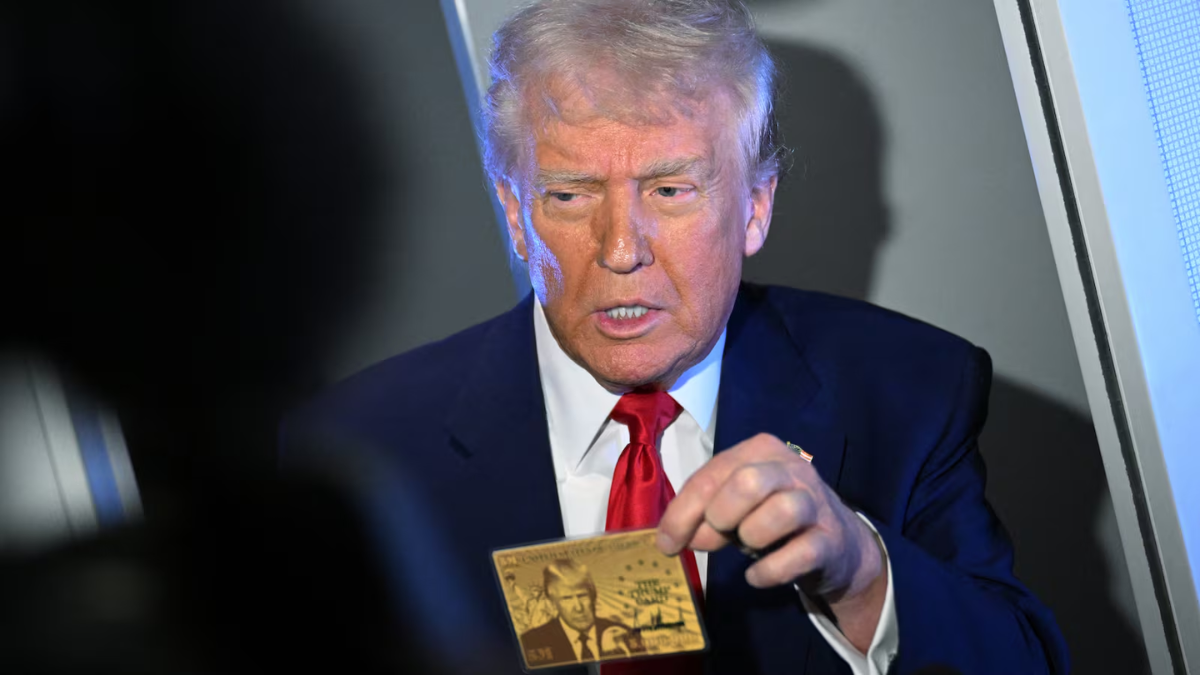In February 2025, President Donald Trump unveiled a proposal to replace the existing EB‑5 investor visa with a branded “Gold Card” visa, costing $5 million per applicant. Trump described the card as a fast‑track “route to citizenship” for “high‑level people,” promising direct paths to permanent residency and eventual citizenship for those who can afford the steep fee .
The move immediately ignited debate over whether U.S. immigration policy should cater primarily to the ultra‑wealthy rather than skilled workers or family‑based applicants.
Under the current EB‑5 program, foreign investors secure a green card with a minimum $800,000 investment in designated rural or high‑unemployment areas—provided they create at least ten jobs.
Trump’s “Gold Card” would more than sextuple that threshold, theoretically funneling billions into federal coffers and steering ultra‑rich investors away from competing destinations.
Elon Musk’s DOGE Service Takes the Reins
In a surprising twist, the administration enlisted Elon Musk’s Department of Government Efficiency (DOGE) team to architect the digital infrastructure for the Gold Card program. Established by executive order on January 20, 2025, DOGE (formerly the U.S. Digital Service) is tasked with “modernizing federal technology” and operates embedded engineers across agencies Taipei Times.
Sources report that DOGE engineers have been working side‑by‑side with staff from the State Department, Department of Homeland Security (DHS), and U.S. Citizenship and Immigration Services (USCIS) to build a dedicated website and application portal for the visas .
Leading the project on DOGE’s side are Marko Elez, a 25‑year‑old engineer known for online controversies, and Edward “Big Balls” Coristine, aged 19. Both have reportedly met with agency officials to determine how existing EB‑5 processes—such as background checks, regional center certifications, and capital escrow arrangements—can be integrated into the new Gold Card system .
Revenue Projections Versus Reality
Commerce Secretary Howard Lutnick has touted the Gold Card plan as a lucrative revenue generator, claiming on a podcast that 1,000 cards were “sold” in a single day—equating to $5 billion—even though no funds have actually been exchanged .
Proponents argue that at $5 million each, the program could dwarf EB‑5 revenues, providing a massive influx of cash for infrastructure projects or deficit reduction.
Yet independent analysts caution these revenue figures are speculative. Without binding commitments or escrowed deposits, Lutnick’s sales claims may amount to little more than aspirational rhetoric.
Even if a fraction of the proposed cards are issued, the program’s long‑term success hinges on sustained global demand among ultra‑wealthy investors—and many may balk at the price tag or complex vetting requirements.
For further analysis, read this deep dive from The New York Times on the program’s feasibility: NYT report on the Gold Card scheme.

Political and Ethical Backlash
Critics from across the political spectrum decry the Gold Card as “citizenship for sale,” arguing it undermines traditional merit‑ and family‑based immigration channels. Immigration advocates warn the policy entrenches inequality by privileging the wealthiest foreigners, rather than skilled professionals or refugees in genuine need.
Progressives have vowed to block any legislation that diverts resources from affordable housing and social programs to subsidizing visas for the global elite.
Some Republican lawmakers also express reservations, fearing the optics of a $5 million visa could alienate working‑class voters and fuel accusations that the GOP favors the rich.
Meanwhile, media watchdogs highlight the administration’s reliance on private contractors—Musk’s DOGE team—to set immigration policy, raising questions about transparency, accountability, and conflicts of interest.
Legal Complexities and Oversight Concerns
Beyond the political furor, the Gold Card proposal raises legal questions. U.S. visa regulations are established by Congress, and outsourcing key elements of rule‑making and implementation to private actors like DOGE may exceed executive authority.
The Congressional Research Service has flagged potential violations of the Federal Advisory Committee Act and the Freedom of Information Act, since DOGE teams operate with broad access to agency data but limited public oversight Taipei Times.
Additionally, the rapid timeline—reportedly weeks from project kick‑off to portal launch—could strain existing federal IT infrastructures and vetting protocols, risking security lapses or data breaches.
Experts caution software glitches in the application portal could lead to lost fees, misrouted approvals, or unauthorized admissions.
What’s Next for the Gold Card Program?
As of April 2025, no official launch date has been set. The DOGE team continues refining the portal’s user interface, security architecture, and backend integrations with DHS and USCIS systems .
Parallel efforts in Congress are underway to draft authorizing legislation, but the program’s future is uncertain amid lawsuits challenging DOGE’s legal standing and partisan disputes over immigration priorities.
Should the Gold Card scheme advance, it will mark a watershed moment in U.S. immigration policy—transforming the EB‑5 investor pathway into a premium “pay‑to‑play” model. Whether this approach delivers the promised capital or collapses under legal and logistical hurdles remains to be seen.
Conclusion
Trump’s Gold Card visa program, built by Elon Musk’s DOGE engineers, exemplifies the administration’s blend of private‑sector innovation and high‑stakes political branding. While the $5 million price tag and Musk’s tech cachet offer a splashy reimagining of investor visas, the plan faces steep legal, ethical, and practical challenges.
As details continue to unfold, stakeholders—from Congress to immigration advocates—will watch closely to see if the Gold Card glitters like gold or tarnishes under scrutiny.
For more context on how EB‑5 works today, see the U.S. Citizenship and Immigration Services overview.
Disclaimer – Our team has carefully fact-checked this article to make sure it’s accurate and free from any misinformation. We’re dedicated to keeping our content honest and reliable for our readers.
